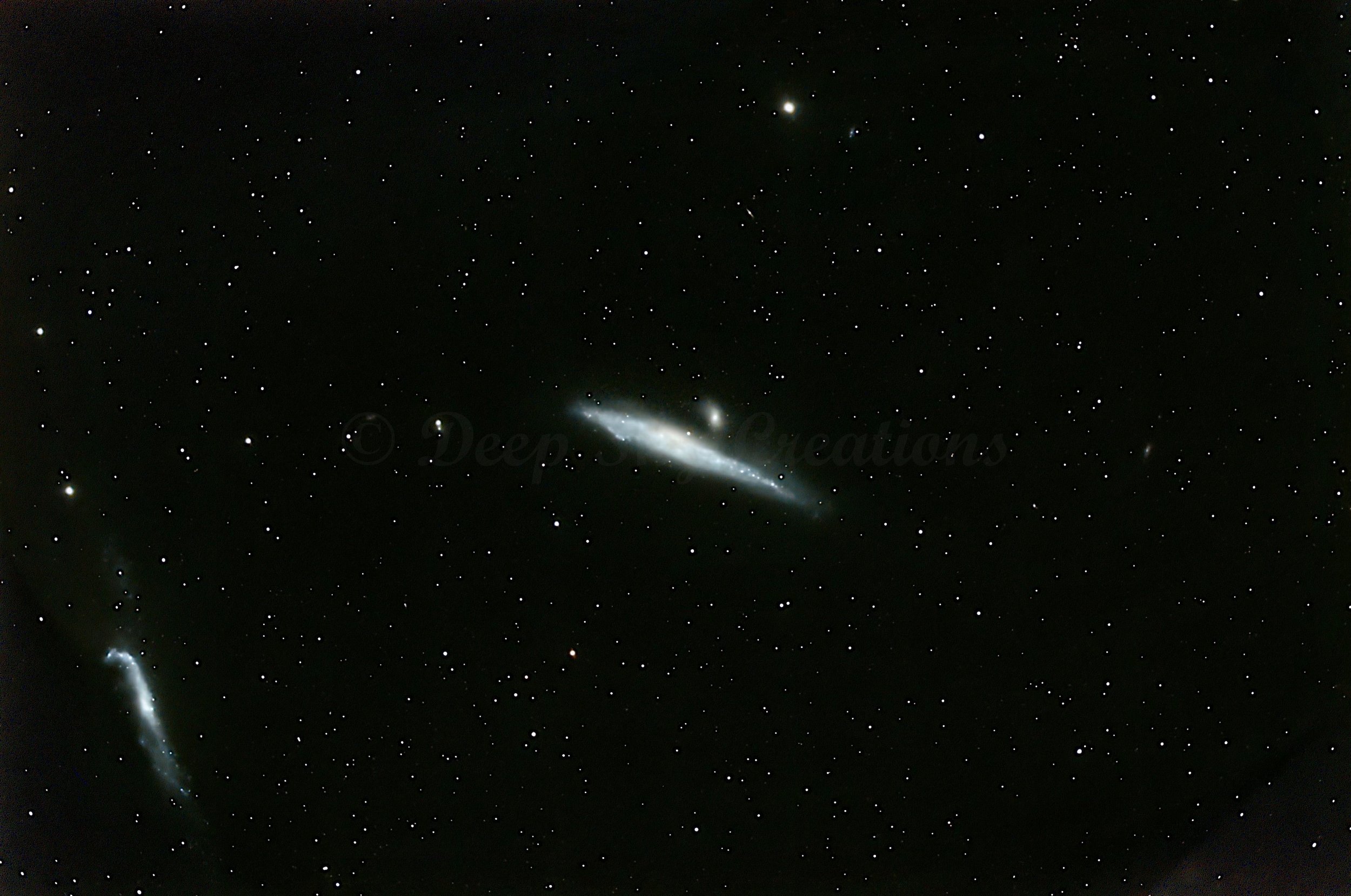Whale Galaxy

Whale Galaxy by Mike Rizor (All images © Deep Sky Creations. Unauthorized use or reproduction is strictly prohibited.)
Drifting quietly through the constellation Canes Venatici, about 30 million light-years from Earth, is a galaxy that stretches and curves like a massive creature breaching the surface of the cosmos — the Whale Galaxy.
Also known as NGC 4631, this stunning edge-on spiral galaxy gets its nickname from its elongated shape and gently warped disk, which resembles the silhouette of a whale gliding through a sea of stars.
Seen nearly from the side, the Whale Galaxy reveals a unique perspective on galactic structure:
A bright, central spine runs the length of the galaxy, rich with clusters of stars and glowing gas.
Dark dust lanes and filament-like features ripple through the disk, shaped by gravitational forces and past interactions.
Surrounding the galaxy is a faint, glowing halo — a sign of powerful starburst activity and streams of material ejected far into space.
The Whale Galaxy is not alone — it’s part of a small galactic group, and its shape is believed to have been distorted by a past encounter with its smaller companion, NGC 4627, visible nearby as a faint smudge of light.
✨ A Portrait of Motion and Tension
NGC 4631 is more than a static spiral — it is a living, dynamic structure, still rippling from the effects of gravitational interaction.
It’s a galaxy in motion, telling a story of past encounters and ongoing transformation.
At Deep Sky Creations, the Whale Galaxy is a reminder that galaxies are not just distant lights — they are active, evolving systems, each with a unique personality, history, and motion through the universe.

